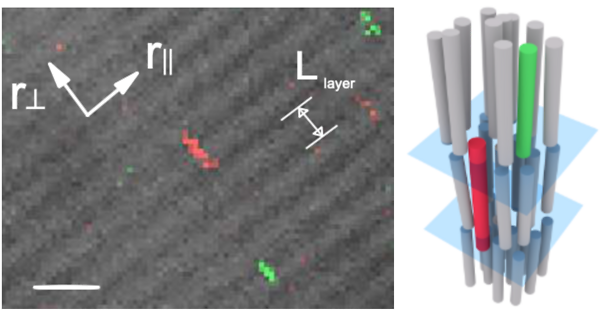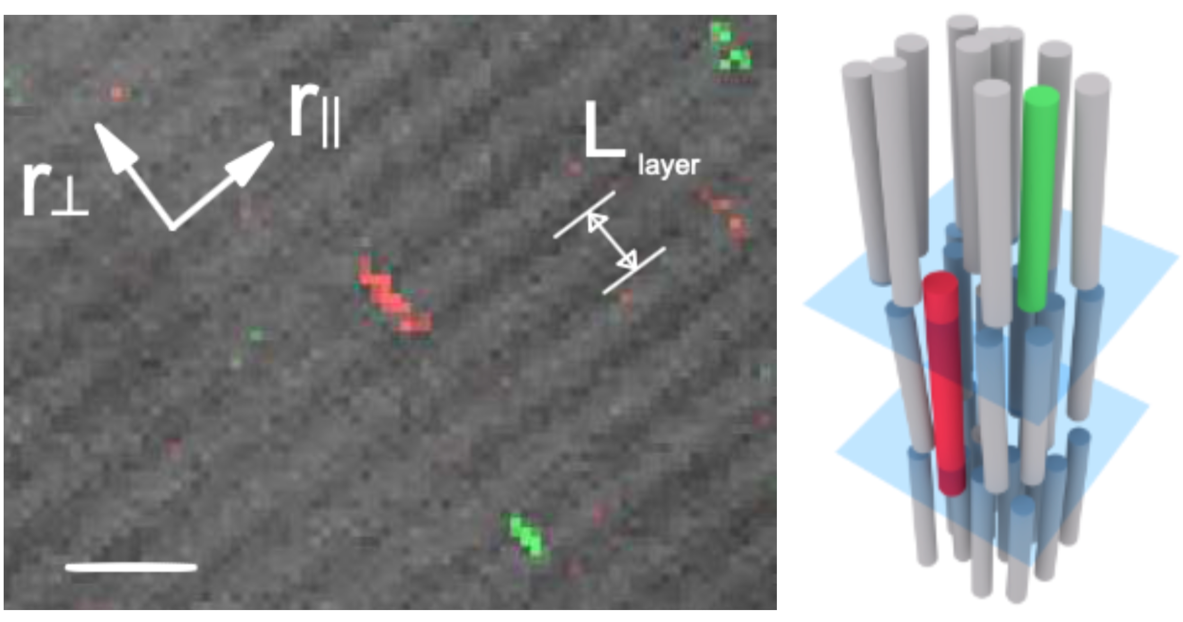Virtual Seminar"How rods give structure to fluids and how structure is distorted by flow" Pavlik Lettinga

Date
Location
Description
Micro/Bio/Nanofluidics (Shen) Unit would like to invite you to the virtual seminar by Prof. Pavlik Lettinga on January 18 (Monday).
----------------------------------------------------------------------
Date: Monday, January 18, 2021 (Monday)
Time: 16:00-17:00
**Zoom session
----------------------------------------------------------------------
Join Zoom Meeting
https://oist.zoom.us/j/93507654163?pwd=NGdqdXl5N1Q2Nm1uWnhtK2hyV21WUT09
Meeting ID: 935 0765 4163
Passcode: 003318
Speaker:
Pavlik Lettinga
Assistant Professor
Forschungszentrum Jülich GmbH
Title:
How rods give structure to fluids and how structure is distorted by flow
Abstract:
The most effective way to structure a fluid is by immersing slender rods, as rods have a huge excluded volume. In equilibrium, this leads to an entropy-driven cascade of phase transitions with increasing concentration of rods. When subjecting isotropic, randomly oriented, rods to flow, this leads to a strong shear thinning as volume becomes available by flow aligning the rods. While the first phenomenon is a hall mark for self-assembly, the second phenomenon is of special interest to understand industrial and biological processes industrial applications.
Both subjects will be addressed in this talk, using biological engineered rod-like viruses, with different well-defined length and stiffness. First, I will discuss video microscopy experiments on highly ordered rods, revealing very unusual dynamics that challenge fundamental notions on diffusion [1,2]. Second, I will show how the geometry and stiffness of rods play a key role in the rheological response, using a combination of Rheology and Small Angle Neutron Scattering (Rheo-SANS), resolving the orientational ordering of rodlike viruses in all relevant directions. Interpretation of this data for the different model rods on the basis of microscopic theory gives a full understanding of the non-linear flow behavior [3], though the understanding of extensional flow is still challenging [4].

Figure 1 Left: Guest-host system exhibiting a smectic organization as shown by the overlay of a differential interference contrast (DIC) microscopy image, evidencing smectic layers, and of a fluorescence image, displaying the dual labeling of the host and guest particles. The scale bar represents 2.0 μm. Right: Schematic representation of the guest-host system in both smectic-A and smectic-B phases
1. M. P. Lettinga and E. Grelet. Self-Diffusion of Rodlike Viruses through Smectic Layers. PRL 99 (2007) 197802.
2. L. Alvarez, M. P. Lettinga, E.Grelet, Fast Diffusion of Long Guest Rods in a Lamellar Phase of Short Host Particles. PRL 118 (2017) 178002.
3. Lang, C. et al. Microstructural Understanding of the Length- and Stiffness-Dependent Shear Thinning in Semidilute Colloidal Rods. Macromolecules 52 (2019) 9604-9612.
4. Lang, C. et al. Effects of particle stiffness on the extensional rheology of model rod-like nanoparticle suspensions. Soft Matter 15 (2019) 833-841.
Host:
Prof. Amy Shen
Subscribe to the OIST Calendar: Right-click to download, then open in your calendar application.



